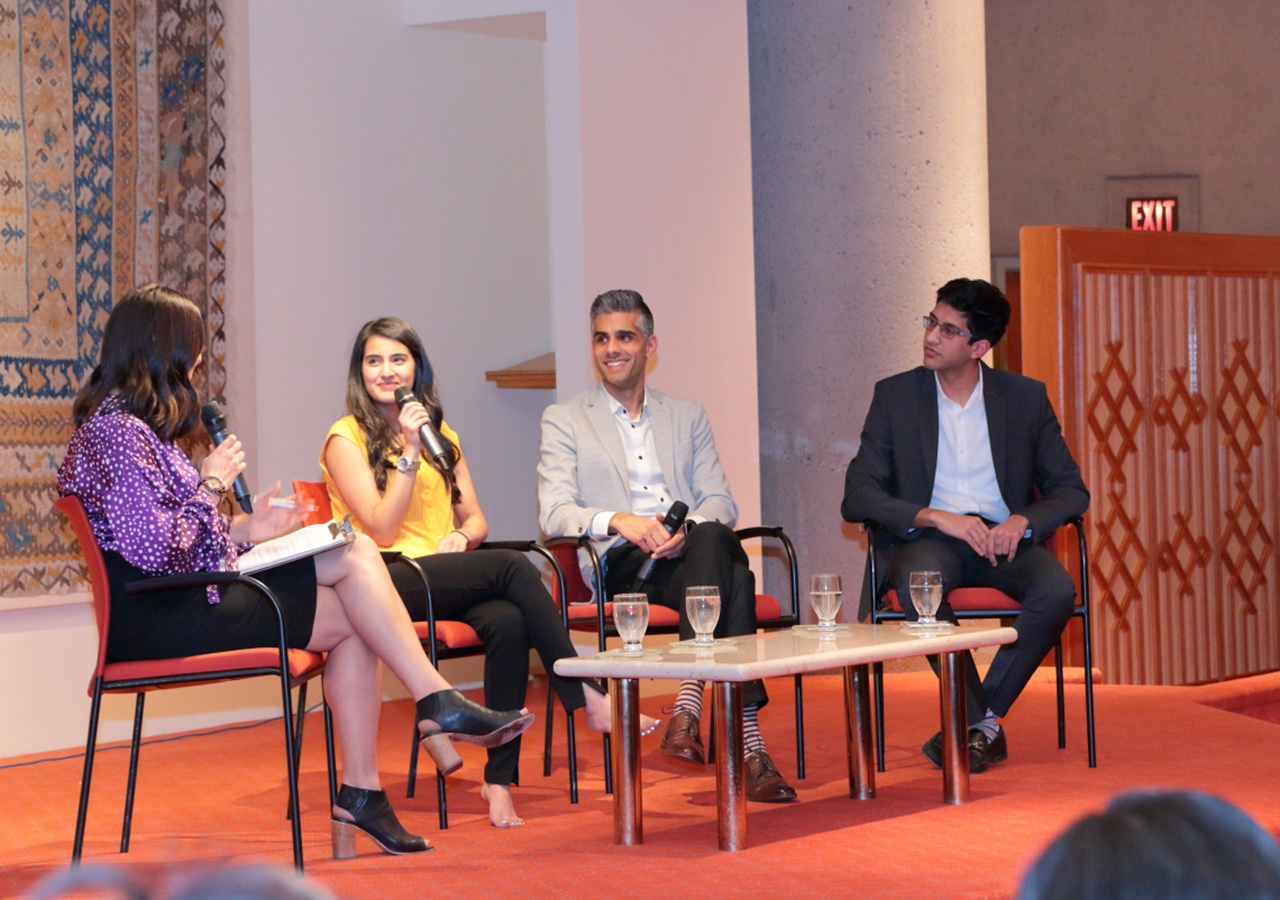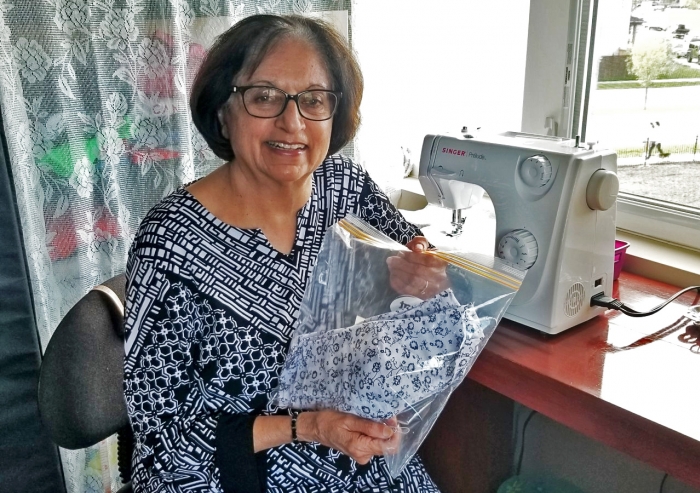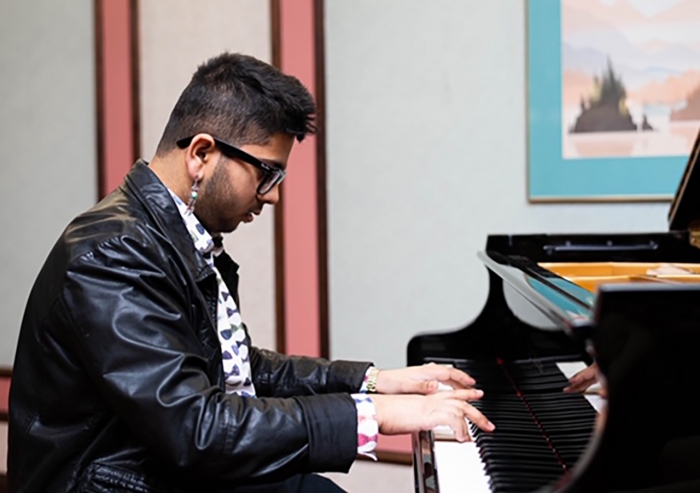The Canadian high-school student fought with her mother about it, and on her way to school, her supposed friends made jokes and taunted her.
Karim’s fictional struggle with Islamophobia is portrayed in Speak, a short film written and directed by Shaheed Devji based on real-life feelings and situations he and people around him have faced. The 33-year-old’s film premiered on February 26, 2020 at the Ismaili Centre Vancouver.
Following the screening, Devji took part in a panel discussion about Islamophobia in front of a packed hall of over 250 people.
“After 9-11, that internal struggle began of whether I wanted to speak out and defend a faith and religion that I knew to be only peaceful for my entire existence, or not to, because of all the things I’d been seeing in the news,” said Devji, who worked as a TV reporter before building a career in marketing and communications.
He explained that the strong values he was brought up with as a Muslim didn’t match up with the negative public perceptions of Islam developing around him.
“Islam is a peaceful religion. It’s one of generosity and compassion and helping others and giving back and introspection and intellect,” he said.
“We are all more similar than we think or than we know. All the major religions are essentially the same – it comes down to the golden rule of treating others the way we want to be treated.”
Ziyana Vasaya, the 23-year-old actor who played Natasha in the film, and Kian Lalji, a grade 12 student who organized an anti-Islamophobia rally, joined Devji on the panel, which was moderated by journalist Nafeesa Karim.
Vasaya said Muslims can help change negative perceptions by leading by example.
“If people in your school think Muslims are bad because that’s what they’ve seen on TV, if they know you as a person and you’ve been genuinely kind, you can slowly start to change that,” said Vasaya.
Seventeen-year-old Lalji discussed why he organized an anti-Islamophobia rally with his younger brother Razaan in November. The event challenged negative stereotypes and fake news about Islam, he said.
“If you explain what Islam is to just one person, and you educate one person at a time, that can make a big difference if a bunch of people are doing it,” he said.“You don’t have to do something big. Every small step accumulates.”
Devji and Vasaya also made an appearance on CTV news the day before the screening to discuss Islamophobia.
Following the film and panel discussion, audience member Aazra Tejpar said that, while she’s never experienced hateful words directed her way, she remembers seeing her Muslim friends being teased and insulted when she was in high school.
The 25-year-old explained that, unlike her, her friends were more visibly noticeable as Muslims because they wore traditional clothing that made them a target.
“I wish I could go back and use what I learned today to stand up for them,” she said.
Devji now hopes to use his film, which you can see a clip of here, to change negative perceptions of Muslims and raise awareness about the impact of Islamophobia.
“I hope to show it in schools and have a discussion with students about what they’re going through and the questions they have in their own lives.”
Questions, comments, article suggestions? Contact Canada My Community Editor: [email protected]








